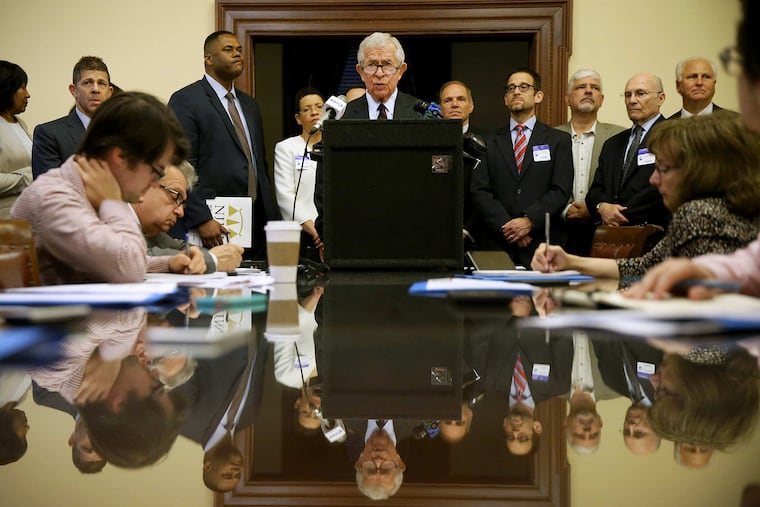N.J. school segregation lawsuit inches toward trial after negotiations stall
“We didn’t feel that the state was responding with a sufficient degree of participation to make discussions worthwhile,” said the chairman of the coalition that brought the litigation.

A year after civil-rights advocates and students sued the state over desegregating New Jersey public schools, negotiations have broken down and the case may be headed to trial.
The plaintiffs and Gov. Phil Murphy’s administration had a series of “constructive meetings," but “the reality is, we were looking for the state to be more responsive to the entire issue of segregation,” said Gary Stein, a former New Jersey Supreme Court justice, who is chairman of the coalition that brought the litigation.
“We didn’t feel that the state was responding with a sufficient degree of participation to make discussions worthwhile,” Stein said.
He acknowledged that the remedies sought in the suit, including changing the ways students are assigned to schools, would be “politically difficult for any administration.”
With settlement talks over, the case moves to a trial track. No dates have been set.
Alexandra Altman, a spokesperson for Murphy, said the governor would not comment on pending litigation.
In a court filing this month, the Attorney General’s Office "denied that the state has been complicit in the creation or persistence of school segregation and that any state laws, policies, or practices violate students’ constitutional or statutory rights.”
The lawsuit was filed a year ago, on the 64th anniversary of the landmark Brown v. Board of Education decision that public school segregation was unconstitutional.
The New Jersey lawsuit alleges that the state has been “complicit” in creating and perpetuating “one of the most segregated public school systems in the nation," because it requires “with very limited exceptions” students to attend public schools in the towns where they live.
While the total of black and Latino students is nearly equal to the white total statewide, most black and Latino students attend schools that are largely nonwhite, the suit says, and a growing number of students attend schools that are 99 percent nonwhite.
Nationally, the percentage of public schools that are 90 percent to 100 percent nonwhite has tripled since 1988, to 18.2 percent in 2016, according to a report this month by University of California, Los Angeles, and Pennsylvania State University professors.
Unlike many other states, New Jersey explicitly bans racial segregation in its constitution. That provision is part of the basis of the suit, which was filed in Superior Court in Trenton by plaintiffs including the Latino Coalition and the NAACP New Jersey State Conference.
The suit also alleges that "an alarming number” of black and Latino students are being denied a thorough and efficient education — another requirement of the state constitution — “because educational opportunity is … undermined for students in schools that are often characterized by intense poverty and social isolation.”
The suit asks the court to stop the state from continuing to assign students to schools solely based on municipal boundaries, and to order the legislature and the Department of Education to come up with a new methodology. It suggests several options, including inter-district transfer plans, the creation of magnet schools that would draw from multiple districts, and a system that would allow families to rank school choices, then assign them based on preference as well as diversity goals.
“It seemed to us it would be essential to have the force of a court judgment behind us to get the state to agree on a significant long-term remediation plan,” Stein said.
At the time the lawsuit was filed, a spokesman for Murphy said that the governor was “deeply committed to boosting diversity in our schools.”
But “the remedies are significant,” said Stein. "I can’t be surprised that they’re slow to tackle it head on.”